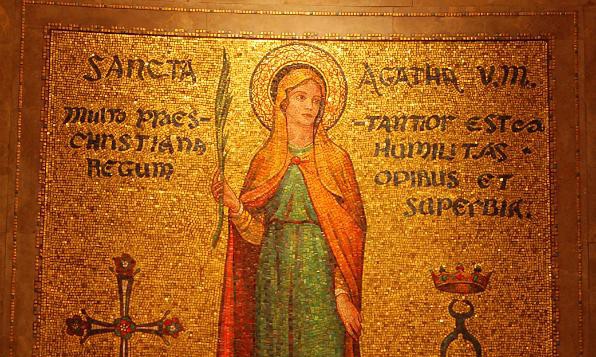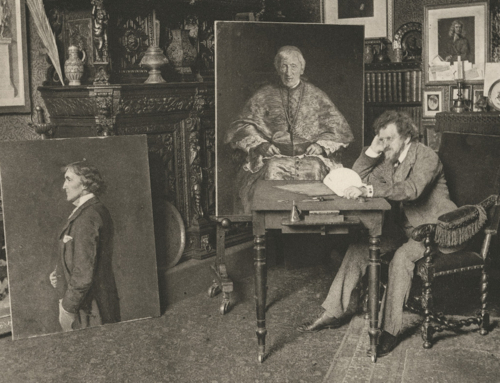Can anyone esteem any beauty greater than a virgin’s…?
Why ascribe such a mystique to virginity? Are we listening to the voice of a love-stricken Romeo from a bygone era?
In fact, the statement comes from St. Ambrose of Milan (c. 337-397 AD); he continues, “…[the virgin] is beloved by her King, approved by her Judge, dedicated to her Lord, consecrated to her God….” All these things make her beautiful. Virginity bedazzles because it points to a completion beyond what nature alone can offer. This virtue has lasting value in the Church because it reminds us–celibate and not–that ultimate human contentment is found primarily in a relationship with God.
Christians praise virginity because it affords them the freedom to focus on their ultimate end and good, which is God. With our probing minds and unquenchable desires, we can see that only an infinite “good” will satisfy us in the long run. As one generation can testify to the next, pampering one’s body can lead to a restless soul, the greatest athletic feats inevitably gather dust in the trophy case, power leaves its devotees increasingly insecure, and even more cultivated and intellectual achievements are less impressive the more we know. All this leaves mankind waiting for an authentic happiness.
St. Agatha, whose martyrdom the Church celebrates on February 5, was a young woman who embraced virginity as her path to the ultimate good and true happiness of her soul. Her consecration to infinite truth and goodness in the person of Jesus Christ offered fulfillment so great that death itself could not deter her from possessing it. According to legend, a public official in her native Sicily was captured by Agatha’s physical beauty. Using laws against Christians to his advantage, he summoned her to appear in court for selfish purposes. When she held firm to her Lord Jesus, model and spouse of virgins, the official’s lust turned into frustration and fury. Tormenting her with cruel captivity, he then had her physically mutilated and tortured to death. But despite this horrible persecution, Agatha’s virtue caused her to cling to Jesus, whom she called alone “my life and my salvation.”
St. Agatha and the other virgin saints do not live this path for themselves only, but help us through their single-minded pursuit of God. Prizing virginity is not a rejection of sexuality as lived in marriage. The Church teaches that, by “a special gift from God” (1 Cor 7:7), believers are called to paths of unique sacrifice for the sake of their personal holiness and for the building up of the Church. The vocations to marriage and virginity are both necessary and even complementary (cf. CCC 1620). It is actually by calling some men and women to complete abstinence in the physical respect that God reveals to everyone the importance and the possibility of human relationships marked by wise and selfless love. And such love is the sine qua non of Christian living, single or married. Herein lies the mystique of virginity: It points us–all of us–to a deeper appreciation of the self-sacrificial love of Christ. Through this ongoing revelation of Christ’s love, we are encouraged to direct our own lives toward achieving a similar love as truly fulfilled men and women in the presence of our Creator.
✠
Image: St. Agatha







